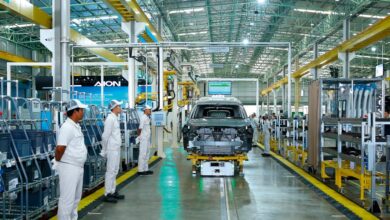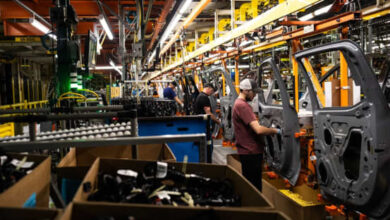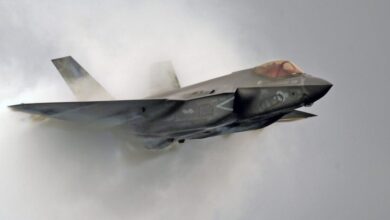Protests erupt in Venezuela after Nicolás Maduro’s disputed election victory
Protests have erupted across Venezuela over the disputed election of authoritarian President Nicolás Maduro, as the opposition claims to have evidence that it won Sunday’s vote and the government responds with a crackdown.
Just a few hours later MaduroMaduro’s victory was certified by the government-controlled electoral body, the CNE, with opposition leader María Corina Machado declaring her candidate Edmundo González the real winner, with 6.2 million votes to Maduro’s 2.7 million, based on votes she said the opposition had obtained from 73 percent of polling stations.
“I tell you with the calmness of truth,” González said, standing next to Machado at a news conference. “We have the statistics that prove our victory.”
CNE said Maduro won with 51.2 percent of the vote to González’s 44.2 percent, with 80 percent of the vote counted. González, a retired diplomat, had led Maduro by at least 20 points in independent polls and had a clear lead in exit polls and quick count polls on Sunday.
On Monday, protesters marched through Caracas toward the center of the capital and the Miraflores presidential palace. Many carried Venezuelan flags, some covered their faces and held large wooden sticks. Police responded by firing tear gas in some areas, sending large plumes of smoke into the afternoon sky.
According to videos shared on social media, at Santa Capilla, a few blocks from the palace, men in civilian clothes fired live rounds from pistols at protesters.
“We are fed up. We want change,” said Leydis Mojares, 33, one of the protesters. “We want a better life for our children. Maduro is no longer our president. The results last night were disappointing… I cried, I screamed. I saw my daughter, who is 13, crying. I told her, ‘How long will this last?’”
In cities across the country, unrest has spilled into the streets. Video shared on social media showed protesters in the northwestern Venezuelan town of Coro toppling a statue of Maduro’s predecessor and mentor, Hugo Chávez, as crowds cheered them. Maduro called the election for Sunday, which would have been Chávez’s 70th birthday.
Maduro’s close allies Russia, China, Iran and Cuba have hailed his victory while the US, EU and UK have demanded a detailed analysis of the vote. Regional power Brazil is trying to mediate between Maduro and the opposition.
The CNE ignored calls to release detailed vote counts, saying the compilation of results had been sabotaged by hackers, and instead held a ceremony declaring him president until 2031.
Maduro, a former bus driver and union activist, said in a blistering 90-minute speech: “Yesterday Venezuela fought and defeated fascism, hatred and evil in this land.”
“There is an attempt to impose a fascist and counter-revolutionary coup in Venezuela once again,” he added.
At many polling stations, the military removed ballot boxes and vote counting records, instead of providing copies to party witnesses, opposition representatives said.
Machado was disqualified by the Supreme Court and instead campaigned on behalf of González, organizing protests across the country. On Monday, Venezuelan Attorney General Tarek William Saab accused her of involvement in an alleged cyberattack on the country’s electoral system, along with two exiled opposition leaders.
The result has caused tensions across Latin America. Venezuela has ordered diplomats from Argentina, Chile, Peru and four other countries to leave immediately, accusing their governments of “openly committing themselves to the most despicable ideological positions of international fascism.”
Argentina’s liberal president Javier Milei refused to accept the results, calling them an “election scam”, while Chile’s leftist president Gabriel Boric said the results were “unbelievable”.
Maduro’s disputed election victory also poses a dilemma for the Joe Biden administration, which negotiated with Maduro to hold a competitive election and temporarily eased sanctions on state oil company PDVSA in October.
The United States reimposed oil sanctions in April, although it granted some waivers, allowing individual companies, including Chevron, Maurel & Prom and Repsol, to continue operating in Venezuela.
Senior US administration officials said Washington had not yet decided on any response. “We are not considering retroactively changing previously issued licenses at this time,” one official said.
Eric Farnsworth, vice president of the Council of the Americas, a business lobbying group, said there were few good options for the United States because Washington was preoccupied with its own election and “didn’t want to deal with another chaotic global crisis.”
The oil-rich nation’s economy, boosted by the loosening of price and currency controls, has recovered slightly after shrinking by three-quarters between 2013 and 2021. During that time, the country suffered from hyperinflation, frequent power outages and shortages of food and medicine. About 7.7 million Venezuelans — about a quarter of the population — have fled.
Additional reporting by Ciara Nugent in Buenos Aires




